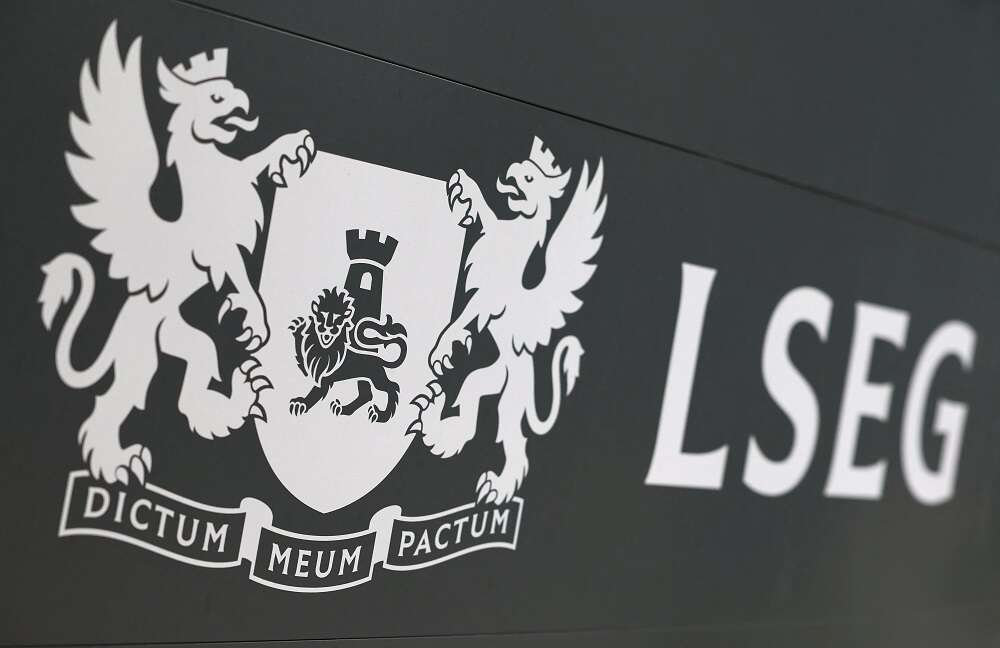
(Reuters) – Global stocks advanced on Tuesday as a flicker of investor risk appetite lifted equities, although trading was cautious given the war in the Middle East and looming make-or-break data for the outlook for U.S. interest rates.
Oil fell further after a flurry of weak economic data sketched a bearish picture which could weigh on oil demand, eclipsing worries that the Israel-Hamas war could escalate into a wider conflict in the crude-exporting region.
The U.S. dollar gained, while Bitcoin, which on Monday staged its biggest one-day rally in a year with a gain of 10.2%, was up another 4%.
Wall Street’s main stock indexes all rose in morning trading. The Dow Jones Industrial Average rose 0.81%, to 33,202, the S&P 500 gained 0.74%, to 4,248 and the Nasdaq Composite added 0.73%, to 13,112.
The MSCI All-World index rose 0.4%, marking its first daily rise since Oct. 17, while an index of Asia-Pacific shares outside Japan edged above a one-year low.
Monthly surveys of business activity showed a decline in the euro zone and the UK in early October, ahead of a separate report due out later for the United States.
“The only real growth that is out there is in the United States,” TraderX strategist Michael Brown said, flagging the monthly U.S. purchasing manager index (PMI) survey due later.
“I would expect that is going to really reinforce that message. The risks facing the euro zone were pretty significant already, before everything kicked off in the Middle East, but now we are potentially looking at a second consecutive winter where the euro zone is having to grapple with an energy shock,” he said.
The STOXX 600 was little changed, as declines in banking shares such as Barclays were offset by gains in the likes of luxury group LVMH and Swiss computer parts maker Logitech.
Investors do not expect the European Central Bank to raise interest rates when it meets this week, but are still prepared for borrowing costs to remain high for a long time.
“The looming spectre of inflation grows even more imposing, especially considering the recent sharp ascent in oil prices,” said Dalma Capital Chief Investment Officer Gary Dugan.
“If oil prices persist at this level throughout the rest of 2023 and into 2024, this could potentially inject another bout of inflation into the global economy.”
THE 5% CLUB
Global bond yields have surged higher in recent weeks, in part because of a growing belief that central banks will have no room to cut interest rates until well into 2024.
The run-up in yields on the 10-year Treasury note to 5% on Monday is a reflection of this belief. The 10-year note was last yielding 4.855%, up 1.5 basis points on the day.
BlackRock Chief Executive Larry Fink said he believed U.S. rates would stay higher for longer, given the amount of fiscal stimulus entering an already resilient economy, and robust wage growth.
“I do believe the Federal Reserve will have to raise rates higher, which probably will mean that by 2025 we may have a soft landing, we may have hard landing. That is the only way that I see that we’ll be arresting this. But I don’t expect it any time soon,” Fink said at a gathering of financial leaders in Riyadh on Tuesday.
Investor attention will be split this week between the earnings of high-profile companies, such as Microsoft, Facebook parent Meta Platforms and Amazon, as well as a slew of economic data ahead of the Fed’s meeting from Oct. 31 to Nov. 1.
Third-quarter gross domestic product data on Thursday, along with the Personal Consumption Expenditures (PCE) report, the U.S. central bank’s preferred inflation gauge, on Friday, could help shape medium-term expectations for U.S. rates.
In the currency market, the dollar rose 0.36% against a basket of currencies, partially reversing Monday’s 0.5% drop.
The yen held steady against the dollar, but was not too far away from 150 per dollar – a level markets believe could prompt Japanese authorities to intervene to prop up the currency. Against the yen, the dollar was steady at 149.80.
“We believe this current dollar weakness is corrective in nature,” Brown Brothers Harriman & Co. strategists wrote in a note Tuesday. “Looking beyond the current noise related to dovish Fed comments, nothing fundamentally has changed and we see no reason to believe the dollar’s uptrend has ended.”
In cryptocurrencies, bitcoin rose to 18-month highs, as speculation about the possibility of an exchange-traded fund drove enthusiasm and prompted short-sellers to exit positions. The world’s biggest cryptocurrency traded as high as $35,198, before easing to $34,383, up about 4% on the day.
Oil prices were dipped on Tuesday following the previous session’s delined after a flurry of economic data from Germany, the wider euro zone and Britain sketched a bearish picture which could weigh on oil demand. U.S. crude fell 0.57% to $85.00 per barrel and Brent was at $89.36, down 0.52% on the day.
Spot gold dropped 0.5% to $1,963.10 an ounce.
(Reporting by Lawrence Delevingne in Boston and Amanda Cooper in London. Additional reporting by Ankur Banerjee in Singapore; Editing by Mike Harrison, Mark Potter and Toby Chopra)


